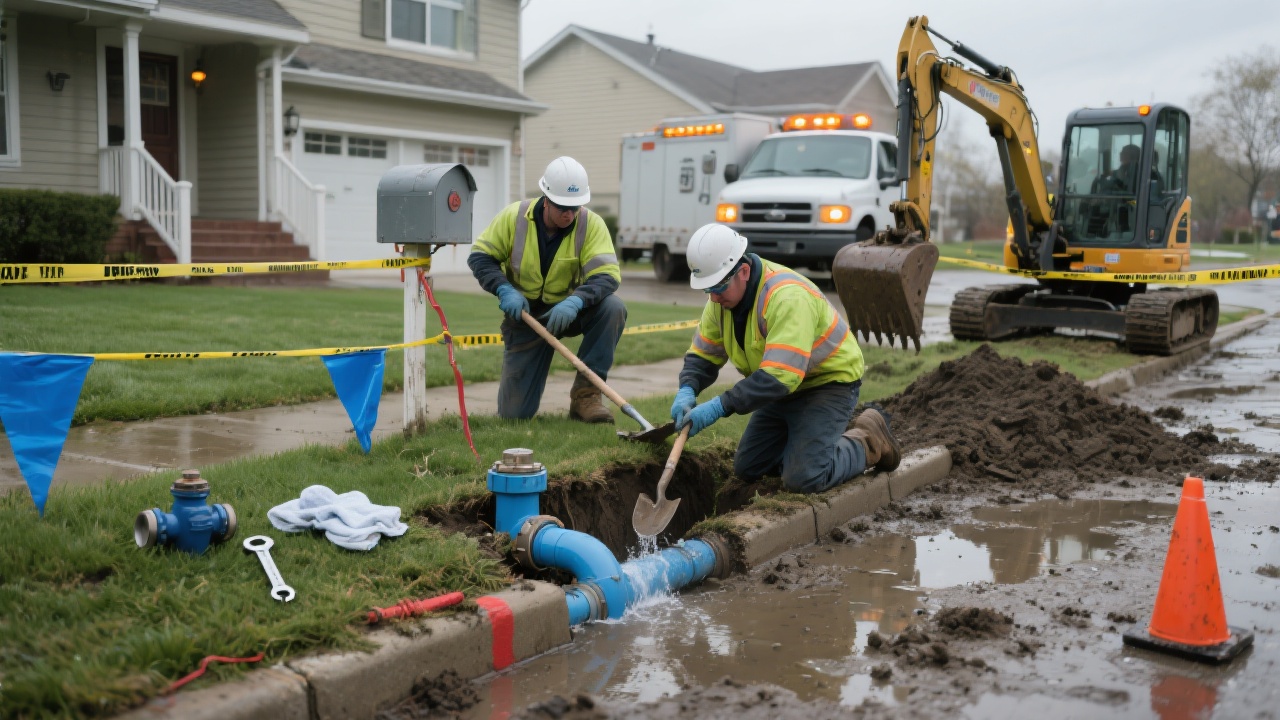Last Updated on October 30, 2025 by teamobn
Most property disputes today involve some kind of shared space—driveways, fences, alleys, or utilities. If you’re looking at a home that borders or includes shared land, this is something you need to take seriously. Shared property rights aren’t always obvious, and they don’t always show up clearly in listings or open houses.
If someone else has permanent legal access to use part of the property, that can affect what you’re allowed to do with it—and what it’s worth.
This guide walks you through what to ask, what to check, and what you need to know to avoid problems later.
Contents
Understand What Shared Land Actually Means
The term “shared land” is more complicated than it sounds. Most people think it means two neighbors split ownership of a physical space, like a driveway. But that’s not always the case. You can still “own” a piece of land while someone else holds legal rights to use it in a specific way.
For example, your neighbor might have the right to drive across a part of your yard to reach their garage. You might own that land, but they can legally access it every day, whether you like it or not. That’s what makes shared land different from regular private property.
Ask the Right Questions About Easements
Easements are legal rights that allow someone to use a part of a property for a specific purpose, such as access or utility lines.
Ask your agent to check the title documents or municipal records. These details matter because they affect how much control you actually have over the property.
For example, if a neighbor uses part of a driveway that crosses the land you’re buying, it might fall under something called an appurtenant easement. If you’re wondering what is an appurtenant easement, it’s a permanent legal right tied to the land itself—one that remains even when ownership changes. Knowing whether something like this exists helps you understand your long-term rights and obligations.
Review the Property Survey Carefully
A licensed survey shows the real property lines, not just where the fence sits or where the grass stops. It maps out boundaries, structures, and any legal rights that others have over the land.
When you’re buying near shared land, the survey can help you spot easements, encroachments, and any space that might be used by someone else. It also helps confirm whether you’re getting full access to things like driveways, water lines, or parking areas. Skipping this step is one of the biggest mistakes buyers make.
Maintenance Rules Aren’t Always Clear
Shared spaces like roads or driveways require upkeep, and it’s not always clear who’s responsible. Before buying, ask who maintains the shared land and how those costs are handled. If a private road needs grading or snow removal, you don’t want surprise bills—or arguments with neighbors.
Sometimes, there’s an agreement written into the deed. Other times, it’s a loose understanding between current neighbors. That might work for them, but it’s a risk for new owners. If the shared space falls into disrepair and no one wants to take responsibility, things can get messy fast.
Get details about past repairs, how costs were split, and whether there’s a maintenance agreement in writing. If not, it’s a smart idea to have one created before closing.
Utility Access May Be Shared Too
Shared land doesn’t only mean physical pathways. Many properties share utility lines or infrastructure. A buried water line or power line might run across someone else’s land, or a utility company may need access through your property to reach a neighbor’s connection.
Ask about these arrangements before you buy. Utility easements can give companies—and sometimes neighbors—the right to enter parts of your land. If you’re not aware of this, it can feel intrusive or unfair later. It’s better to know upfront what to expect and where those lines are located.
Check the plat map or survey to confirm the placement of all utility lines. And make sure your future use of the land won’t interfere with those systems.
Bad Neighbor Relationships Can Cost You
Legal documents only tell part of the story. When it comes to shared land, neighbor relationships can make or break your experience as a homeowner. A long-running argument over parking, fences, or upkeep can turn into a major issue.
Before buying, try to talk to neighbors directly. Ask about how shared areas are used and maintained. Pay attention to their tone and attitude. Are they cooperative? Defensive? Vague? Don’t ignore warning signs. Even if everything looks calm now, bad feelings can surface once ownership changes.
You can also search public records to see if there have been past lawsuits or complaints involving the property. One neighbor dispute on file might not mean much—but a pattern of problems is a red flag.
Get Everything in Writing Before You Close
Verbal agreements about shared land may work fine until something goes wrong. Maybe the seller says, “We just split the snow plow bill every winter,” but there’s no paperwork to back that up. What happens if the neighbor refuses to pay next year?
You should never rely on handshakes or casual promises. If there’s a shared arrangement in place, put it in writing. That can be part of the purchase contract, or you can ask the seller and neighbors to sign a separate maintenance agreement.
If it’s not recorded, future buyers won’t know about it, and the courts may not enforce it. Written agreements give everyone clarity—and protection.
Buying property near shared land isn’t a bad decision. In many cases, it’s completely manageable. But you do need to go in with your eyes open. A quiet shared driveway or friendly handshake deal can quickly turn into a long-term problem if you don’t take the time to understand the rights, limits, and responsibilities involved.
Start with the title documents, survey, and easement records. Ask the right questions, talk to the neighbors, and involve a real estate attorney if you’re unsure. With the right information, you can make a smart choice and avoid legal headaches later.
When shared land is handled properly, it doesn’t have to be a hassle. But when it’s ignored or misunderstood, it can create years of stress. Be proactive, ask questions, and protect your investment before you sign the deal.






